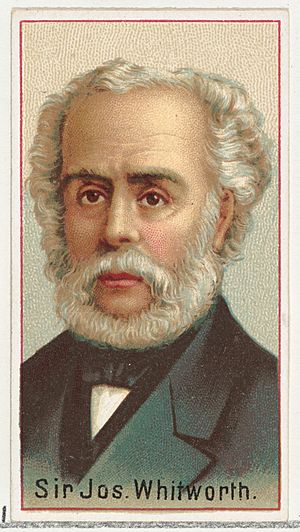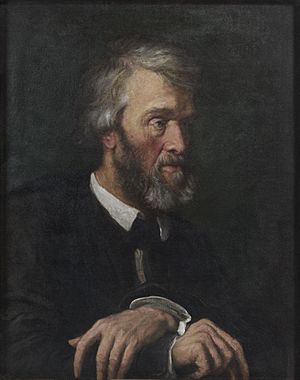Captain of industry facts for kids

In the 1800s, a captain of industry was a business leader who became very rich but also helped their country. They did this by making more products, creating new markets, offering many jobs, or giving money to good causes (this is called philanthropy). This idea is different from a robber baron. A robber baron was a business leader who got rich by using unfair political tricks.
Where Did the Idea Come From?

The term "captain of industry" was first used by a Scottish writer named Thomas Carlyle. He wrote about it in his essay "Count Cagliostro" in 1833.
Later, in his 1843 book Past and Present, Carlyle used the term for factory owners and other business leaders. He saw them as a new kind of important group, like old aristocrats. Carlyle believed that society needed to focus on hard work and honesty, not just on showing off wealth.
He thought that the biggest problem in England was how employers and workers treated each other. He felt that people only cared about money, which led to everyone feeling alone. Carlyle believed that a "Chivalry of Work" was needed. This meant that business leaders should guide their workers fairly. In return, workers should be loyal and dedicated to their jobs and their leaders. He thought this would create a better, more organized society.
How Carlyle's Ideas Influenced Others
Carlyle's ideas about "captains of industry" were important to many thinkers. They influenced economists like Alfred Marshall and William Smart. These thinkers saw figures like Ernst Abbe as good examples of Carlyle's vision.
Captain of Industry vs. Robber Baron
Some business leaders from the 1800s were called both "captains of industry" and "robber barons". Famous examples include Cornelius Vanderbilt, Andrew Carnegie, Andrew Mellon, Leland Stanford, and John D. Rockefeller.
The National Endowment for the Humanities has a lesson plan for schools about this topic. It asks students to decide if "robber baron" or "captain of industry" is a better term. The lesson explains that these powerful business leaders did some unfair things. But they also made smart business moves and gave a lot to charity.
It's argued that because these people gathered so much money, the United States became a huge industrial power. Some of their actions, which happened when there were very few rules for businesses (this is called laissez faire), led to poor conditions for workers. However, these actions might have also helped create the good living standards we have today.

